Pregnancy is a time when you want to look and feel your best, but you also want to make sure that everything you put on your skin and into your body is safe for your growing baby. So you may be thinking- do I have to give up my summer glow? The answer is… you don’t (thank god!). Not all tanning products or methods are recommended to use during pregnancy, but we’re here to give you the 411 on tanning while pregnant.
@petajanebeauty Chit Chat Tan Sesh with our founder, @petamurgs ! Watch for pregnancy updates, #DWTS news, and more! 🤎 #gettanwithme #petajanebeauty #dwts #selftan #selftanning #selftanningmousse #petamurgatroyd ♬ original sound - Peta Jane Beauty
Is Self-Tanner Safe to Use During Pregnancy?
The short answer is yes (always check with your primary care physician first), but not all tanning methods are created equally! Some tanning methods will give you that glow worry-free, while others should be avoided. Let’s get into what makes a pregnancy safe self-tanner!
We’ve said it once, we’ll say it again: sun tanning and tanning beds are harmful to your health. Baking in the sun can increase your risk of skin cancer, as well as cause additional damage to your skin and premature aging. It’s best to steer clear of these methods, especially when pregnant. If you are in the sun, remember that SPF is your best friend and should be used daily!
DHA is the main ingredient in most self-tanners. When applied on your skin, DHA gently adds that sun-kissed glow. It stays on the outermost skin layer, which naturally sheds after about a week. So, when it’s applied as a mousse or lotion, there’s no need to worry about it moving into your body.
However, the same can’t be said when doing a spray tan. DHA is still a chemical and spray tans can cause the chemical to enter your body through your eyes, nose or mouth quite easily. This is why DHA is approved by the FDA as a topical application, like a mousse or lotion, but not for aerosol application.

Ingredients to Look Out For
When choosing a self-tanner, be on the lookout for safe ingredients that will not harm your skin or baby during pregnancy. Some ingredients to avoid include:
- Retinoids
- Salicylic acid
- Hydroquinone
- Parabens
- Phthalates
- Certain synthetic fragrances
Instead, look for self-tanners that contain natural and organic ingredients. These ingredients are gentle and nourishing to the skin and provide a natural-looking tan.
The same thing goes for other skincare products like lotion or SPF, which can help to make your skin more youthful and your tan last longer.

It is also important to note that self-tanners do not provide any sun protection and should not be used as a substitute for sunscreen. Always wear sunscreen when going outside to protect the skin from UV radiation and keep your youthful glow.
When pregnant, it is always best to consult with a healthcare provider before using any new products, including self-tanners. While self-tanners are generally safe to use during pregnancy, it is always better to err on the side of caution and seek medical advice.

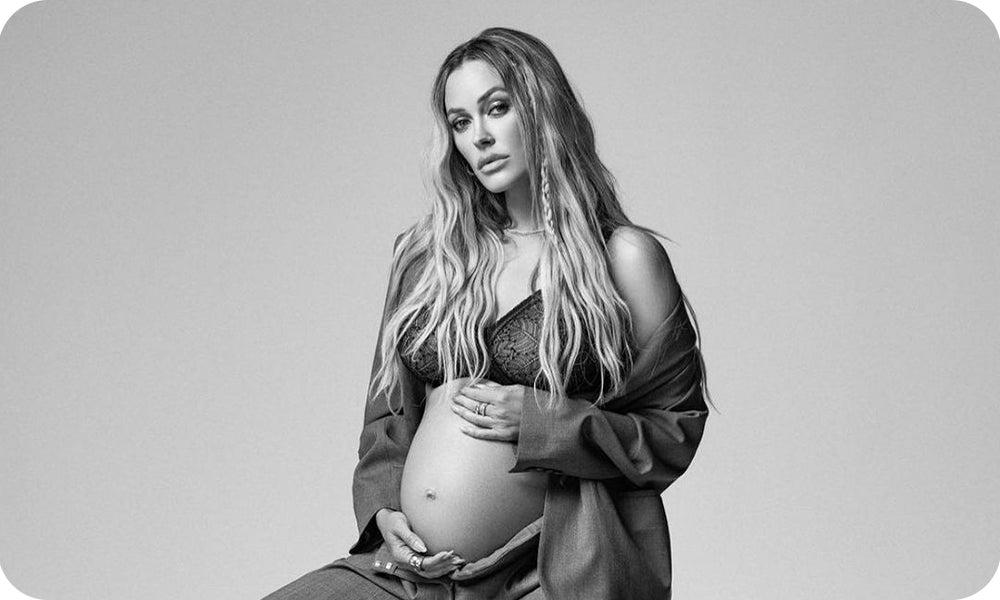
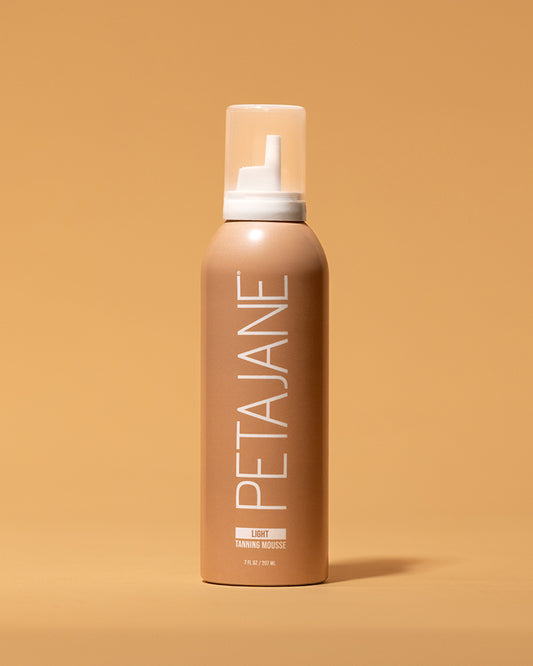

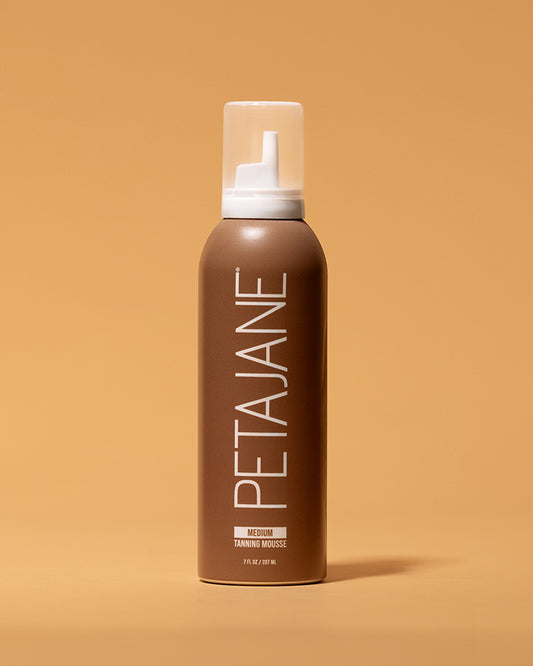

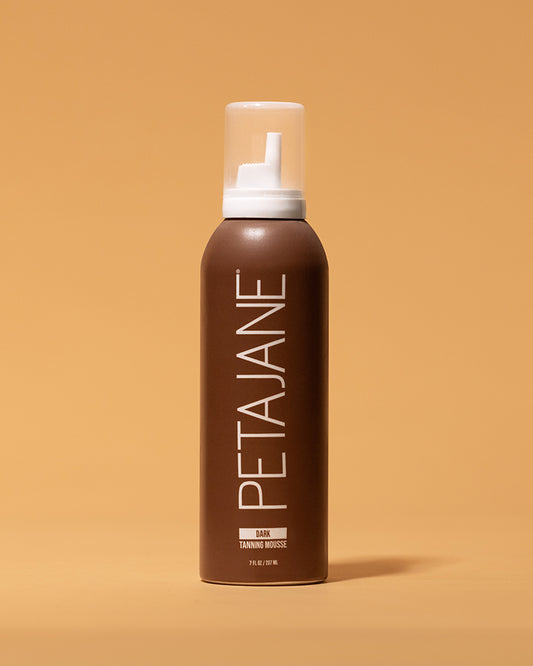

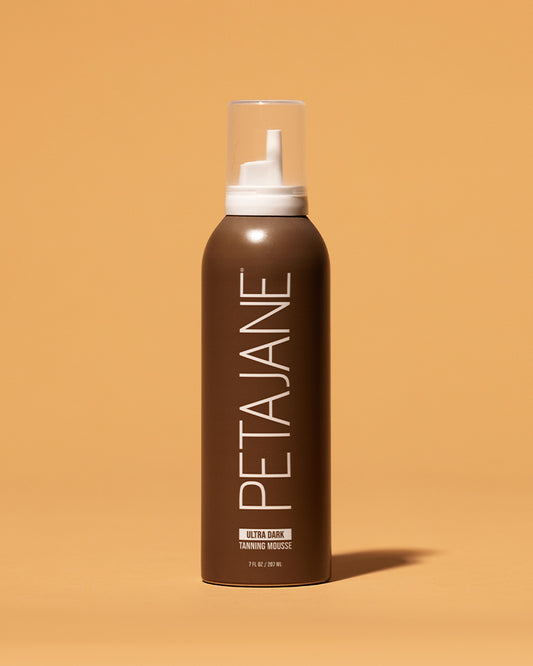
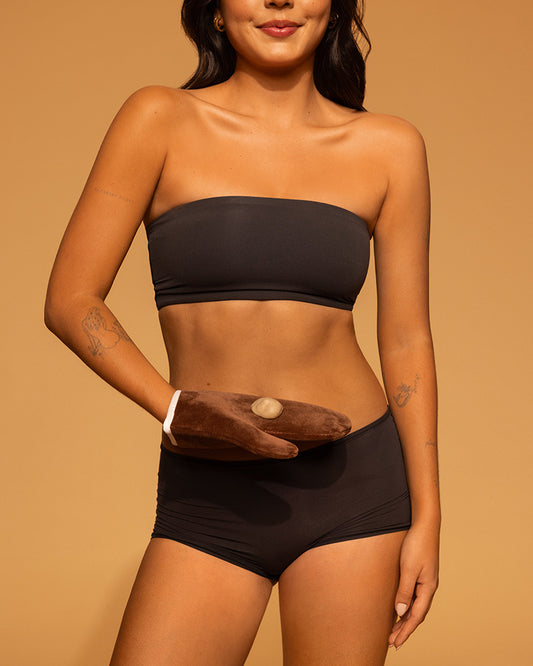
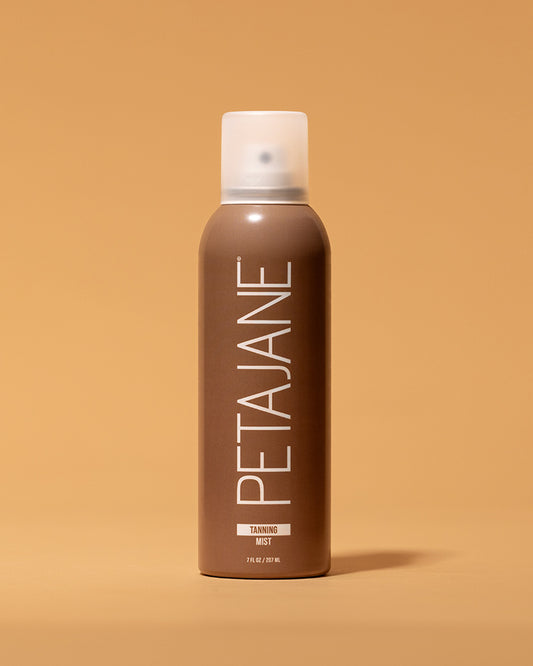
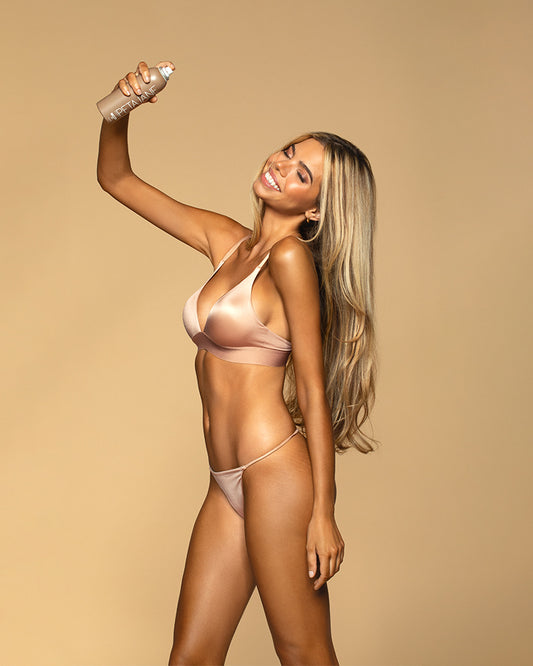
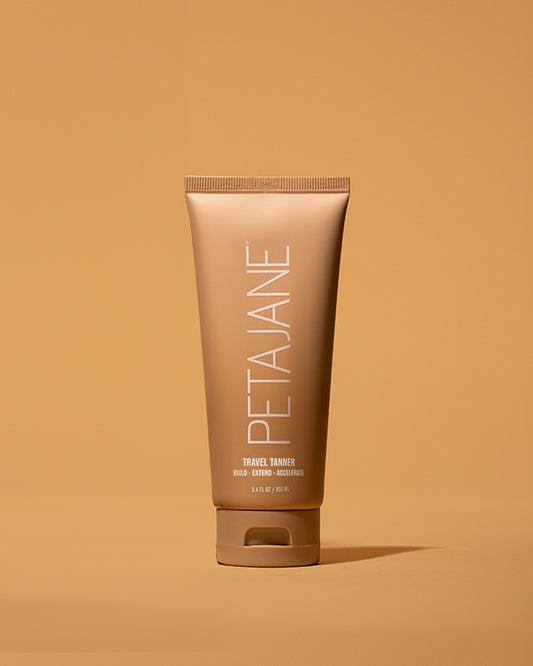
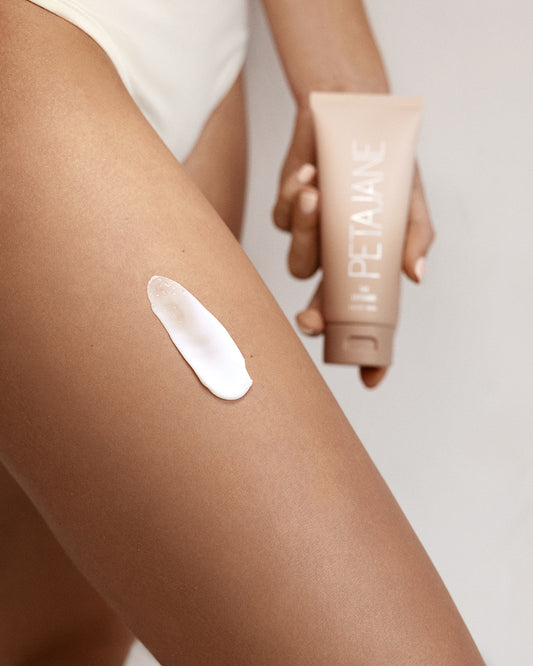
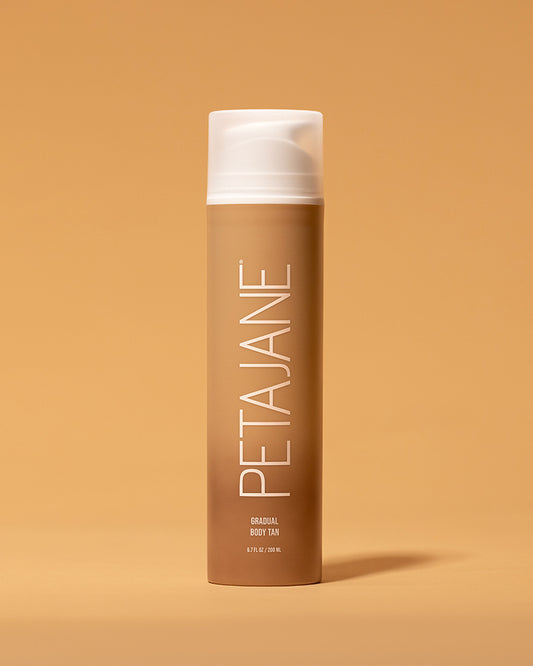
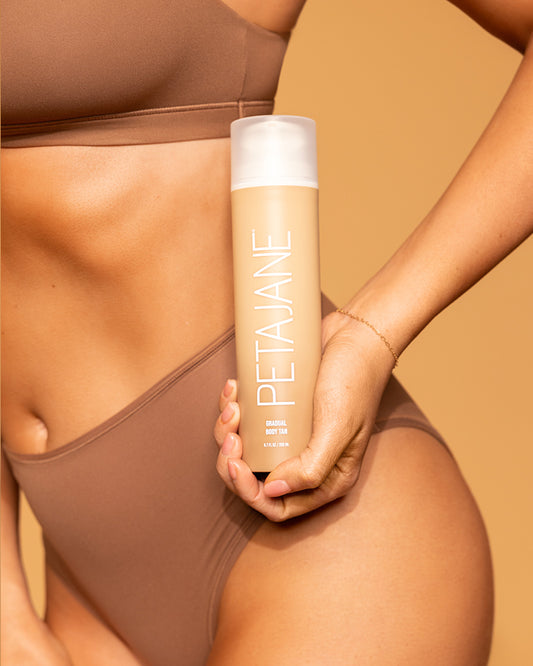
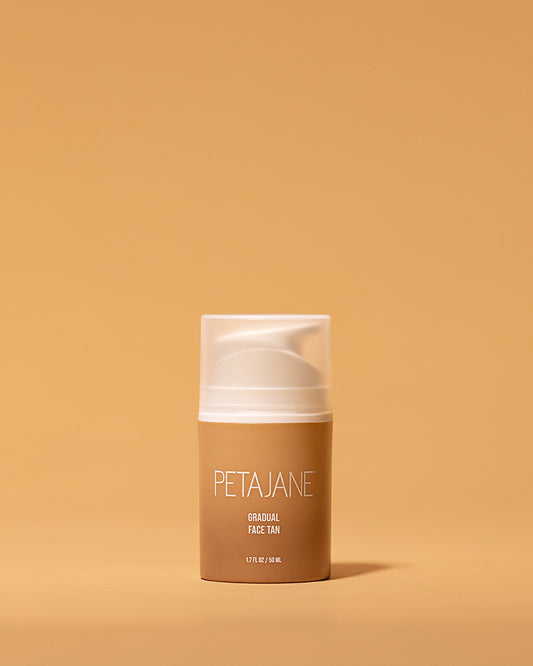
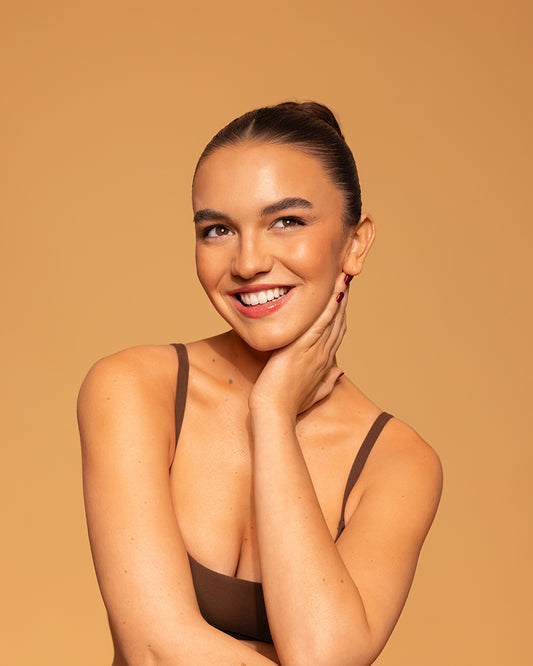
1 comment
I have learned from dermatologists and nutritionists that DHA definitely enters the bloodstream when applied to the skin(our body’s largest organ that is incredibly absorbent), and can cause more free radical damage. This is concerning as I am very sensitive to chemicals on the skin, but REALLY want a quality self-tanner for a wedding I am in. Is your product DHA free? Is there even such a thing in the world of self tanners?!